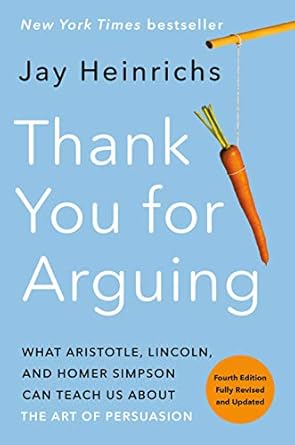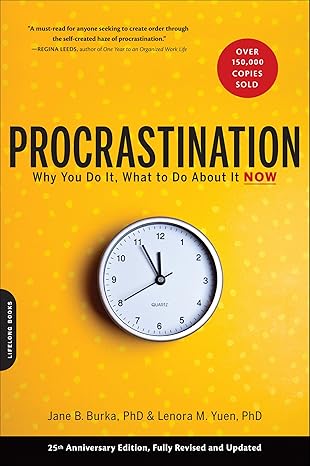
Be What You Wish
Most men are totally unaware of the creative power of imagination and invariably bow before the dictates of 'facts' and accepts life on the basis of the world without. But when you discover this creative power within yourself, you will boldly assert the supremacy of imagination and put all things in subjection to it. It is believed that all men can change the course of their lives. By our imagination, by our affirmations, we can change our world, we can change our future. If we strive passionately to embody a new and higher concept of ourselves, then all things will be at our service.
CONTENTS: 1. Be What You Wish 2. By Imagination We Become 3. Answered Prayer 4. Meditation 5. The Law of Assumption 6. Truth 7. Stone, Water or Wine? 8. Feeling is the Secret 9. Affirm the Reality of Our Own Greatness
BEST DEALS
About the Author
Neville Goddard is well known as one of the most influential teachers and writers of metaphysical work. Neville was born on 19 February, 1905 in Barbados. He was the fourth child in a family of nine boys and one girl. In 1922, Neville came to the United States to study drama at the age of seventeen. During his entertaining tour in England as a vaudeville dancer and stage actor, he developed a great interest in metaphysics.
Hence, he gave up his entertainment job and devote fully to the study of metaphysics and spiritual matters. Neville gives the readers the necessary tools to understand and manifest what they desire in their lives.
Read Sample
1. Be What You Wish
A newspaperman related to me that our great scientist, Robert Millikan, once told him that he had set a goal for himself at an early age when he was still very poor and unproven in the great work he was to do in the future. He condensed his dream of greatness and security into a simple statement, which statement, implied that his dream of greatness and security was already realized. Then he repeated the statement over and over again to himself until the idea of greatness and security filled his mind and crowded all other ideas out of his consciousness. These may not have been the words of Dr. Millikan but they are those given to me and I quote, “I have a lavish, steady, dependable income, consistent with integrity and mutual benefit.” As I have said repeatedly, everything depends upon our attitude towards ourselves. That which we will not affirm as true of ourselves cannot develop in our life. Dr. Millikan wrote his dream of greatness and security in the first person, present tense. He did not say, “I will be great; I will be secure,” for that would have implied that he was not great and secure. Instead, he made his future dream a present fact. “I have,” said he, “a lavish, steady, dependable income, consistent with integrity and mutual benefit.”
The future dream must become a present fact in the mind of him who seeks to realize it. We must experience in imagination what we would experience in reality in the event we achieved our goal, for the soul imagining itself into a situation takes on the results of that imaginary act. If it does not imagine itself into a situation, it is ever free of the result.
It is the purpose of this teaching to lift us to a higher state of consciousness, to stir the highest in us to confidence and self-assertion, for that which stirs the highest in us is our teacher and healer. The very first word of correction or cure is always, “Arise.” If we are to understand the reason for this constant command of the Bible to “arise,” we must recognize that the universe understood internally is an infinite series of levels and man is what he is according to where he is in that series. As we are lifted up in consciousness, our world reshapes itself in harmony with the level to which we are lifted. He who raises from his prayer a better man, his prayer has been granted.
To change the present state we, like Dr. Millikan, must rise to a higher level of consciousness. This rise is accomplished by affirming that we are already that which we want to be; by assuming the feeling of the wish fulfilled. The drama of life is a psychological one which we bring to pass by our attitudes rather than by our acts. There is no escape from our present predicament except by a radical psychological transformation. Everything depends upon our attitude towards ourselves. That which we will not affirm as true of ourselves will not develop in our lives.
We hear much of the humble man, the meek man – but what is meant by a meek man? He is not poor and groveling, the proverbial doormat, as he is generally conceived to be. Men who make themselves as worms in their own sight have lost the vision of that life – into the likeness of which it is the true purpose of the spirit to transform this life. Men should take their measurements not from life as they see it but from men like Dr. Millkan, who, while poor and unproven, dared to assume, “I have a lavish, steady, dependable income, consistent with integrity and mutual benefit.” Such men are the meek of the Gospels, the men who inherit the earth. Any concept of self less than the best robs us of the earth. The promise is, “Blessed are the meek, for they shall inherit the earth.” In the original text, the word translated as meek is the opposite of the words – resentful – angry. It has the meaning of becoming “tamed” as a wild animal is tamed. After the mind is tamed, it may be likened to a vine, of which it may be said, “Behold this vine. I found it a wild tree whose wanton strength had swollen into irregular twigs. But I pruned the plant, and it grew temperate in its vain expense of useless leaves, and knotted as you see into these clean, full clusters to repay the hand that wisely wounded it.”
A meek man is a self-disciplined man. He is so disciplined he sees only the finest, he thinks only the best. He is the one who fulfills the suggestion, “Brethren, whatsoever things are true, whatsoever things are honest, whatsoever things are just, whatsoever things are pure, whatsoever things are lovely, whatsoever things are of good report; if there be any virtue and if there be any praise, think on these things.”
We rise to a higher level of consciousness, not because we have curbed our passions, but because we have cultivated our virtues. In truth, a meek man is a man in complete control of his moods, and his moods are the highest, for he knows he must keep a high mood if he would walk with the highest.
It is my belief that all men can, like Dr. Millikan, change the course of their lives. I believe that Dr. Millikan’s technique of making his desire a present fact to himself is of great importance to any seeker after the “truth.” It is also his high purpose to be of “mutual benefit” that is inevitably the goal of us all. It is much easier to imagine the good of all than to be purely selfish in our imagining. By our imagination, by our affirmations, we can change our world, we can change our future. To the man of high purpose, to the disciplined man, this is a natural measure, so let us all become disciplined men. Next Sunday morning, July 15th, I am speaking as the guest of Dr. Bailes at 10:30 at the Fox-Wilshire Theater on Wilshire Boulevard, near La Cienega. My subject for next Sunday is “Changing Your Future.” It is a subject near to the hearts of us all. I hope you will all come on Sunday to learn how to be the disciplined man, the meek man, who “changes his future” to the benefit of his fellow man. If you are observant, you will notice the swift echo or response to your every mood in this message and you will be able to key it to the circumstances of your daily life. When we are certain of the relationship of mood to circumstance in our lives, we welcome what befalls us. We know that all we meet is part of ourselves. In the creation of a new life we must begin at the beginning, with a change of mood. Every high mood of man is the opening of the door to a higher level for him. Let us mould our lives about a high mood or a community of high moods. Individuals, as well as communities, grow spiritually in proportion as they rise to a higher ideal. If their ideal is lowered, they sink to its depths; if their ideal is exalted, they are elevated to heights unimagined. We must keep the high mood if we would walk with the highest; the heights, also, were meant for habitation. All forms of the creative imagination imply elements of feeling. Feeling is the ferment without which no creation is possible. There is nothing wrong with our desire to transcend our present state. There would be no progress in this world were it not for man’s dissatisfaction with himself. It is natural for us to seek a more beautiful personal life; it is right that we wish for greater understanding, greater health, greater security. It is stated in the sixteenth chapter of the Gospel of St. John, “Heretofore have ye asked for nothing in my name; ask and ye shall receive, that your joy may be full.”
A spiritual revival is needed for mankind, but by spiritual revival I mean a true religious attitude, one in which each individual, himself, accepts the challenge of embodying a new and higher value of himself as Dr. Millikan did. A nation can exhibit no greater wisdom in the mass than it generates in its units. For this reason, I have always preached self-help, knowing that if we strive passionately after this kind of self-help, that is, to embody a new and higher concept of ourselves, then all other kinds of help will be at our service.
The ideal we serve and hope to achieve is ready for a new incarnation; but unless we offer it human parentage it is incapable of birth. We must affirm that we are already that which we hope to be and live as though we were, knowing like Dr. Millikan, that our assumption, though false to the outer world, if persisted in, will harden into fact.
The perfect man judges not after appearances; he judges righteously. He sees himself and others as he desires himself and them to be. He hears what he wants to hear. He sees and hears only the good. He knows the truth, and the truth sets him free and leads him to good. The truth shall set all mankind free. This is our spiritual revival. Character is largely the result of the direction and persistence of voluntary attention.
“Think truly, and thy thoughts shall the world’s famine feed;
Speak truly, and each word of thine shall be a fruitful seed;
Live truly, and thy life shall be a great and noble creed.”
2. By Imagination We Become
How many times have we heard someone say, “Oh, it’s only his imagination?” Only his imagination – man’s imagination is the man himself. No man has too little imagination, but few men have disciplined their imagination. Imagination is itself indestructible. Therein lies the horror of its misuse. Daily, we pass some stranger on the street and observe him muttering to himself, carrying on an imaginary argument with one not present. He is arguing with vehemence, with fear or with hatred, not realizing that he is setting in motion, by his imagination, an unpleasant event which he will presently encounter.
The world, as imagination sees it, is the real world. Not facts, but figments of the imagination, shape our daily lives. It is the exact and literal minded who live in a fictitious world. Only imagination can restore the Eden from which experience has driven us out. Imagination is the sense by which we perceived the above, the power by which we resolve vision into being. Every stage of man’s progress is made by the exercise of the imagination. It is only because men do not perfectly imagine and believe that their results are sometimes uncertain when they might always be perfectly certain. Determined imagination is the beginning of all successful operation. The imagination, alone, is the means of fulfilling the intention. The man who, at will, can call up whatever image he pleases is, by virtue of the power of his imagination, least of all subject to caprice. The solitary or captive can, by intensity of imagination and feeling, affect myriads so that he can act through many men and speak through many voices. “We should never be certain,” wrote William Butler Yeats in his Ideas of Good and Evil, “that it was not some woman treading in the wine-press who began that subtle change in men’s minds, or that the passion did not begin in the mind of some shepherd boy, lighting up his eyes for a moment before it ran upon its way.”
Let me tell you the story of a very dear friend of mine, at the time the costume designer of the Music Hall in New York. She told me, one day, of her difficulty in working with one of the producers who invariably criticized and rejected her best work unjustly; that he was often rude and seemed deliberately unfair to her. Upon hearing her story, I reminded her, as I am reminding you, that men can only echo to us that which we whisper to them in secret. I had no doubt but that she silently argued with the producer, not in the flesh, but in quiet moments to herself. She confessed that she did just that each morning as she walked to work. I asked her to change her attitude toward him, to assume that he was congratulating her on her fine designs and she, in turn, was thanking him for his praise and kindness. This young designer took my advice and as she walked to the theater, she imagined a perfect relationship of the producer praising her work and she, in turn, responding with gratitude for his appreciation. This she did morning after morning and in a very short while, she discovered for herself that her own attitude determined the scenery of her existence. The behavior of the producer completely reversed itself. He became the most pleasant professional employer she had encountered. His behavior merely echoed the changes that she had whispered within herself. What she did was by the power of imagination. Her fantasy led his; and she, herself, dictated to him the discourse they eventually had together at the time she was seemingly walking alone.
Let us set ourselves, here and now, a daily exercise of controlling and disciplining our imagination. What finer beginning than to imagine better than the best we know for a friend. There is no coal of character so dead that it will not glow and flame if but slightly turned. Don’t blame; only resolve. Life, like music, can by a new setting turn all its discords into harmonies. Represent your friend to yourself as already expressing that which he desires to be. Let us know that with whatever attitude we approach another, a similar attitude approaches us.
How can we do this? Do what my friend did. To establish rapport, call your friend mentally. Focus your attention on him and mentally call his name just as you would to attract his attention were you to see him on the street. Imagine that he has answered, mentally hear his voice – imagine that he is telling you of the great good you have desired for him. You, in turn, tell him of your joy in witnessing his good fortune. Having mentally heard that which you wanted to hear, having thrilled to the news heard, go about your daily task. Your imagined conversation must awaken what it affirmed; the acceptance of the end wills the means. And the wisest reflection could not devise more effective means than those which are willed by the acceptance of the end.
However, your conversation with your friend must be in a manner which does not express the slightest doubt as to the truth of what you imagine that you hear and say. If you do not control your imagination, you will find that you are hearing and saying all that you formerly heard and said. We are creatures of habit; and habit, though not law, acts like the most compelling law in the world. With this knowledge of the power of imagination, be as the disciplined man and transform your world by imagining and feeling only what is lovely and of good report. The beautiful idea you awaken in yourself shall not fail to arouse its affinity in others. Do not wait four months for the harvest. Today is the day to practice the control and discipline of your imagination. Man is only limited by weakness of attention and poverty of imagination. The great secret is a controlled imagination and a well sustained attention, firmly and repeatedly focused on the object to be accomplished.
“Now is the acceptable time to give beauty for ashes, joy for mourning, praise for the spirit of heaviness; that they might be called trees of righteousness, the planting of the Lord that He might be glorified.”
Now is the time to control our imagination and attention. By control, I do not mean restraint by will power but rather cultivation through love and compassion. With so much of the world in discord we cannot possibly emphasize too strongly the power of imaginative love. Imaginative Love, that is my subject next Sunday morning when I shall speak for Dr. Bailes while he is on his holiday. The services will be held as always at the Fox Wilshire Theater on Wilshire Boulevard, near La Cienega at 10:30. “As the world is, so is the individual,” should be changed to, “As the individual is so is the world.” And I hope to be able to bring to each of you present the true meaning of the words of Zechariah, “Speak ye every man the truth to his neighbor and let none of you imagine evil in your hearts against his neighbor.” What a wonderful challenge to you and to me. “As a man thinketh in his heart so is he.” As a man imagines so is he. Hold fast to love in your imagination. By creating an ideal within your mental sphere you can approximate yourself to this “ideal image” till you become one and the same with it, thereby transforming yourself into it, or rather, absorbing its qualities into the very core of your being. Never, never, lose sight of the power that is within you. Imaginative love lifts the invisible into sight and gives us water in the desert. It builds for the soul its only fit abiding place. Beauty, love and all of good report are the garden, but imaginative love is the way into the garden.
Sow an imaginary conversation, you reap an act;
Sow an act, you reap a habit;
Sow a habit, you reap a character;
Sow a character, you reap your destiny.
By imagination, we are all reaping our destinies, whether they be good, bad, or indifferent. Imagination has full power of objective realization and every stage of man’s progress or regression is made by the exercise of imagination. I believe with William Blake, “What seems to be, is, to those to whom it seems to be, and is productive of the most dreadful consequences to those to whom it seems to be, even of torments, despair, and eternal death. By imagination and desire we become what we desire to be. Let us affirm to ourselves that we are what we imagine. If we persist in the assumption that we are what we wish to be, we will become transformed into that which we have imagined ourselves to be. We were born by a natural miracle of love and for a brief space of time our needs were all another’s care. In that simple truth lies the secret of life. Except by love, we cannot truly live at all. Our parents in their separate individualities have no power to transmit life. So, back we come to the basic truth that life is the offspring of love. Therefore, no love, no life. Thus, it is rational to say that, “God is Love.”
Love is our birthright. Love is the fundamental necessity of our life. “Do not go seeking for that which you are. Those who go seeking for love only make manifest their own lovelessness and the loveless never find love. Only the loving find love and they never have to seek for it.”












